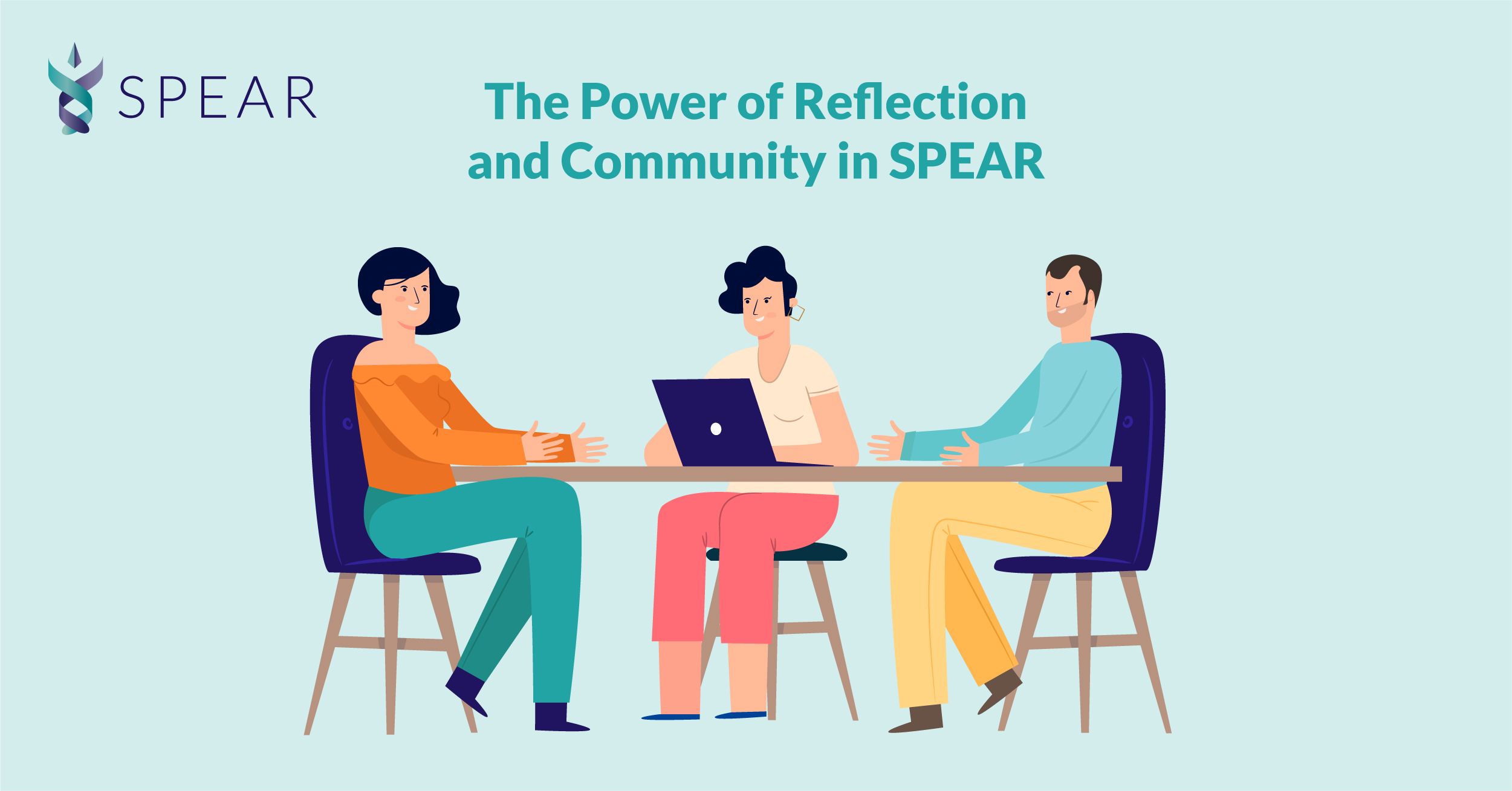In SPEAR’s Community of Practice, we use a narrative approach in our 360° reflective peer-supervision on challenges, dilemmas, or other issues standing out to SPEAR’s consortium members and requiring help or qualifying feedback. This approach is based on a theoretical and practical understanding of the narrative structure of any sensemaking and builds on simple but powerful dialogic principles to unfold lived experiences. Applying this recurrently in a group will strengthen the group’s ability to act, generate, regenerate, and co-create together. This reflective peer-supervision provides a psychologically safe timeslot where members are free to exchange and reflect on their concerns, experiences, successes and challenges and are encouraged and empowered through the active and direct engagement of their peers.
Confronting sexual harassment and resistance to gender equality through 360° reflective peer-supervision
During SPEAR’s first Project Learning and Support Meeting (PLSM), a consortium member used this reflective method to overcome a challenge concerning sexual harassment at their university. The university had previously encouraged victims of sexual harassment to come forward, in order for the institution to work toward a solution. A trustline had been established, but nobody used it, and no progress was made. One doctoral student did bring forward a sexual harassment case, but the only detectable consequence was the student’s decision to take academic leave.
At the PLSM, the consortium member was interviewed by a peer to ensure that the topic was fully fleshed out. During this time, the only two people speaking were the interviewer and the interviewee. Subsequently, the four other consortium members present reflected and provided possible solutions, including pragmatic organizational methods to approach the ethical, legal, and cultural challenges. In the process, the interviewee decided on a specific method to raise awareness in the organization on how to tackle sexual harassment and related issues, and feedback from this session has since been used in implementation at the university. All participants agreed that this session provided great inspiration and insight from each other, regardless of the level or depth of their previous experience in the matter or area of expertise.
Another group raised a challenge they face with institutional resistance to the gender equality agenda. The reflective peer-supervision provided them the opportunity to locate the causes of the problem, to understand the larger context and the need for more sophisticated data and/or methods to research and map out these issues. Analyzing and synthesizing the challenge together, this groups could begin to conceptualize a solution, in this case the positioning of gender equality in the existing equal opportunity rhetoric at the university.
We cannot wait to continue employing this tool to aid in our mapping of challenges and collective method to make progress on gender equality.


